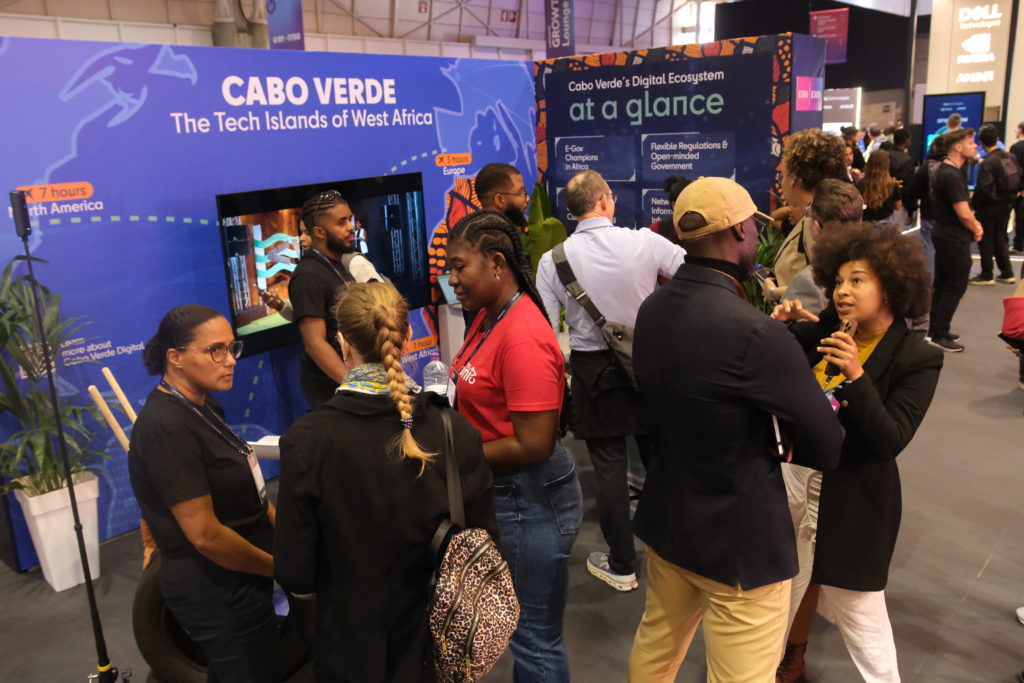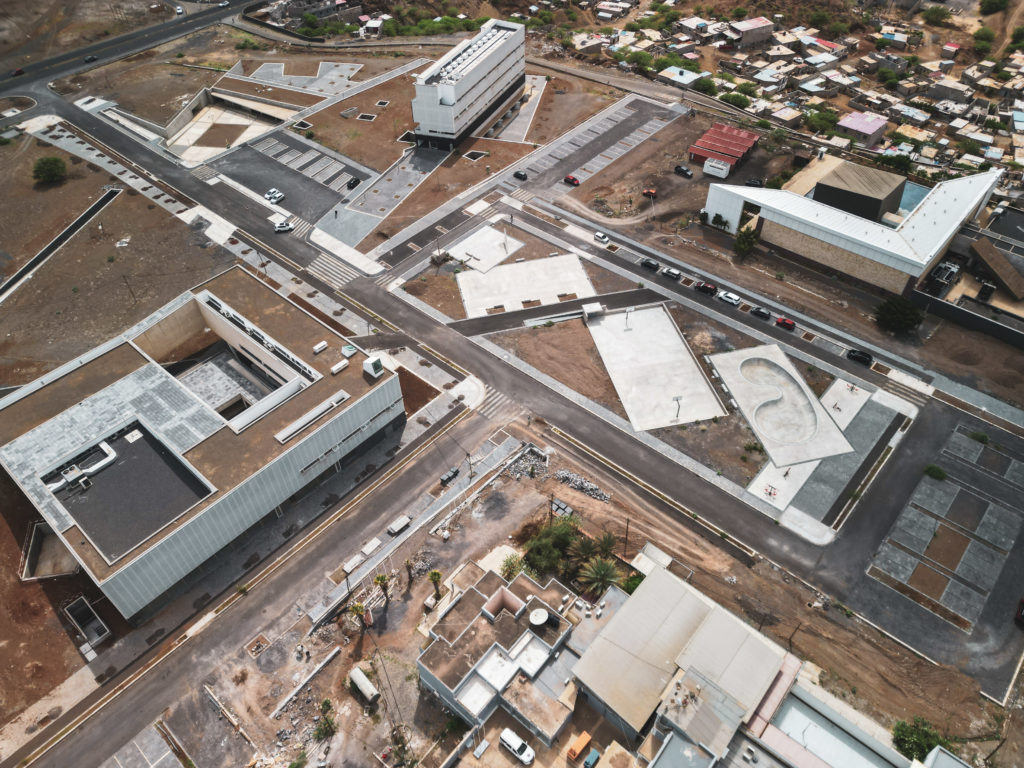Cape Verde is placing a bold bet that a small, stable island nation can punch far above its weight in the digital economy. At the heart of this ambition is the $45 million TechPark CV on the outskirts of Praia, which the government hopes will become a launchpad for startups, an investment magnet for global tech firms, and a symbol of how agility can outpace scale.
The investment is audacious for a country of just over half a million people, whose total national budget is less than $1 billion. But for Pedro Lopes, Cape Verde’s Secretary of State for the Digital Economy, this is precisely the point. “We don’t aim to follow the tech narrative in West Africa,” he says. “We want to reshape it.”
With a new tech park, aggressive investment in digital infrastructure, and a reform-minded digital economy chief, the tiny island nation is betting big on its future as West Africa’s digital testbed.
“Tech islands of West Africa”
Cape Verde’s pitch rests on its ambition to become a regional hub for digital innovation, remote work, and agile tech policy. The government has earmarked over $100 million for digital infrastructure in the past two years, including state-of-the-art submarine cable and 14,530 km island-wide fibre connectivity.
Beyond infrastructure, the state is also investing in people. Through coding academies, English-language tech training, and diaspora engagement, officials hope to create a pipeline of local and global talent that can turn Praia into an innovation hub.
Lopes, a former TEDx organiser and Mandela Washington Fellow, is emblematic of the country’s youth-forward approach. Appointed at 31 with no formal party affiliation, he is one of Africa’s youngest digital economy ministers.
“It’s time to stop calling Africa the continent of the future,” he says. “For our youth, the future is now.”
Cape Verde’s ambitions come when Nigeria and Ghana have solidified their positions as West Africa’s dominant tech markets. Nigeria’s fintech sector alone attracted over $180 million in funding in 2024, while Ghana has emerged as a preferred testing ground for digital health and agritech innovations.
By contrast, Cape Verde has received only a fraction of that investment; its startup ecosystem is nascent, with just over 100 registered companies, including Vale.cv, CV Innovation, Muska, and Prisma Videos—mostly early-stage ventures in sectors like software, e-commerce, digital marketing, travel, and edtech—primarily focused on serving the domestic market or the Cape Verdean diaspora.
Yet, Cape Verde sees an opportunity in its size. “We can move faster. Our stability and governance make us a safe sandbox for innovation,” Lopes says. The island nation ranks 35th globally in the World Bank’s 2023 Government Effectiveness Index, well ahead of regional peers like Ghana, Nigeria, and the Ivory Coast.
Central to Cape Verde’s vision is the TechPark CV, positioned as a free zone for digital firms offering fiscal incentives and streamlined regulation, part of a trend in West Africa, where even smaller nations like Sierra Leone are making bold bets, such as the new SLARI Technology and Innovation Park.
One anchor tenant at TechPark CV, Portuguese cybersecurity firm VisionWare, has already hired more than 50 local engineers to monitor global cyber threats. “They are Cape Verdean, internationally certified, and earning globally competitive wages,” Lopes notes.
While critics worry the incentives could turn Cape Verde into a tax haven, Lopes pushes back. “These setups come with safeguards: local hiring targets, R&D requirements, and training obligations. We don’t want capital shelters. We want builders.”
The return on investment is scrutinised for a country betting 2% of its GDP on a tech park. Lopes believes tangible outcomes will be seen within five to seven years, citing KPIs like export growth, startup formation, and tech sector contributions to GDP.
“We’re already seeing early wins,” he says. “Startups are forming. Diaspora are returning. Global partners are calling.”
The government is also creating an Economic Technology Zone (ZET), a regulatory sandbox that combines tax incentives with flexible innovation rules—a model inspired by similar zones in Estonia and Rwanda.
Brain drain or brain gain?
Cape Verde’s strategy includes reversing the brain drain by building remote work infrastructure and increasing tech-sector incentives for investors. Lopes says that political polarisation and tightening immigration rules in Europe and the US have made returning home more appealing to Cape Verdeans abroad.
“Why should our brightest minds stay in places where they don’t feel welcome?” he asks. “We’re telling our diaspora: come build the future with us.”
There is also a push to integrate second and third-generation Cape Verdeans raised abroad into its workforce. “They bring a sense of purpose and skills that can help scale our ecosystem faster,” says Lopes.
Much of Cape Verde’s long-term play hinges on education. The government is ramping up investments in Science, Technology, Engineering, and Mathematics (STEM) education and pushing for stronger private sector involvement in R&D. Companies operating within the tech park are required to contribute to skills transfer and training.
“In Africa, we often ignore Research and Development (R&D). That must change,” Lopes argues. “We need companies to reinvest in innovation.”
With a median age of 25 and one of the highest literacy rates in sub-Saharan Africa, Cape Verde sees its young population as a competitive advantage. However, challenges remain- high youth unemployment, limited access to risk capital, and a small domestic market.
Betting on the continent
Cape Verde’s aspirations go beyond national gain. Lopes sees his country as a proving ground for the continent where African innovation can be developed, tested, and exported. “We want to show that Africa can create ideas—not just import them,” he says.
While the path to rivalling Nigeria or Ghana remains long, Cape Verde is crafting a distinctive strategy built on agility, inclusion, and long-term vision.
“If we get this right,” Lopes says, “we’ll not only redefine Cape Verde’s future—we’ll help reshape the narrative for the entire continent.”
The gleaming tech park in Praia might be the crown jewel of Cape Verde’s digital ambitions, but as Lopes stresses, a building alone won’t transform the country’s future. “Infrastructure is just the start,” he says. “What really matters is building a vibrant ecosystem — a place where startups can grow, people take risks, and innovation becomes part of everyday life.”
That’s why the country has launched initiatives like Cabo Verde Digital, a programme that supports around 100 early-stage startups each year with small grants, mentoring, and access to essential tools. Lopes admits that most startups will hit roadblocks or fail — that’s how innovation works anywhere. But he’s hopeful that Cape Verde is changing how failure is seen.
“We want young people here to know that failing isn’t the end of the world. It’s a step towards something bigger,” Lopes explains. “It’s about teaching resilience and encouraging people to dream bigger than ever.”
By comparison, Nigeria’s startup ecosystem has matured into one of Africa’s largest, attracting over $400 million in funding in 2024, with fintech accounting for 46%, according to Tech Cabal Insights. Ghana’s tech startups raised over $127 million, also dominated by fintech firms like Fido and ZeePay. But these countries also face challenges — market saturation, infrastructure bottlenecks, and regulatory hurdles — that slow innovation despite their size.
Cape Verde, with its population of just over half a million, can’t match these numbers. But Lopes argues that a smaller scale means greater agility. “We can move faster, make decisions quickly, and create a regulatory environment that supports experimentation,” he says.
Leaving no one behind
Lopes says one of the biggest worries is that the digital boom only benefits a small slice of the population. To avoid this, the government is strengthening existing innovation hubs in Praia and São Vicente as it targets other islands, ensuring more young people get a shot at digital skills.
Meanwhile, Nigeria and Ghana grapple with bridging the urban-rural digital divide. While Lagos and Accra boast high internet penetration and startup density, rural areas lag far behind — a problem Cape Verde hopes to avoid through early investment in island-wide connectivity.
With internet penetration currently at 75%, Cape Verde has a big proportion of its population connected compared to Nigeria’s 48.15% and Ghana’s 69.8%. Initiatives like Connect Cabo Verde are expanding affordable internet access in schools and public spaces, so it’s not just about creating tech jobs but giving everyone the tools to participate.
“It’s not enough to have access to social media and apps,” Lopes says. “We want to empower people to create those apps, to be builders and inventors, not just users.”
Playing to its strengths
Cape Verde’s location and stability have also helped it attract big names. Partnerships with Microsoft, Starlink, and the African Development Bank bring funding, know-how, and credibility.
Starlink’s satellite internet, for example, is helping connect remote areas where laying cables is tough and expensive. Microsoft’s digital development programme is another vote of confidence in Cape Verde’s tech ambitions.
“These partnerships are about more than money,” Lopes says. “They open doors for local startups and connect Cape Verde to global markets.”
Lopes is clear that Cape Verde can’t compete with Nigeria or Ghana on scale. Nigeria’s tech sector generated an estimated 21% of GDP contribution in 2023, while Ghana’s digital economy grew by an estimated 12% annually. But that’s not the point.
“We’re nimble,” he says. “We don’t get bogged down in bureaucracy. Startups here can get direct access to government decision-makers — even the Prime Minister — if they have ideas or issues. That’s rare anywhere, not just in Africa.”
That accessibility, combined with a regulatory sandbox where companies can test new ideas with fewer red tape hurdles, makes Cape Verde an attractive ‘testbed’ for innovation.
The diaspora
Cape Verde also hopes to tap into its large diaspora community to bring back skills, experience, and new ideas. Lopes talks passionately about welcoming back Cape Verdeans living abroad and other Africans abroad to help build the country’s tech future through incentives like tax breaks.
By contrast, while Nigeria’s diaspora contributes significantly through remittances and knowledge transfer, challenges such as brain drain remain pressing. Cape Verde’s approach aims to turn that dynamic around, turning outflows into inflows of talent and investment.
“We want our diaspora to come back and see Cape Verde as a place of opportunity,” he says. “It’s about creating a melting pot where people from different places come together to innovate.”
Lopes imagines Cape Verde’s tech park as a crossroads for talent from Africa, Europe, and the Americas. In this place, innovation happens against a backdrop of ocean views and political stability.
“We want to be a gateway,” he says. “A place where African ideas are born, developed, and shared with the world.”
Of course, challenges remain. Lopes is honest about the risk that the infrastructure investment might become empty buildings without a lively startup scene.
“There’s also a storytelling challenge,” he adds with a smile. “If no one knows who we are or what we’re doing, it’s hard to attract the right partners.”
But with youthful energy, strong partnerships, and a clear vision, Cape Verde’s experiment in digital transformation feels like more than a gamble. It may change the way West Africa thinks about tech.
Mark your calendars! Moonshot by TechCabal is back in Lagos on October 15–16! Join Africa’s top founders, creatives & tech leaders for 2 days of keynotes, mixers & future-forward ideas. Early bird tickets now 20% off—don’t snooze! moonshot.techcabal.com.







